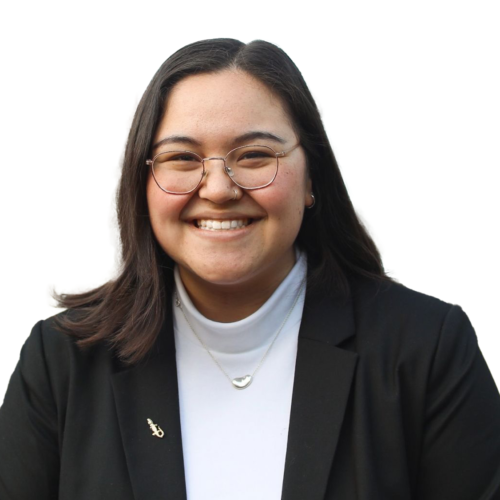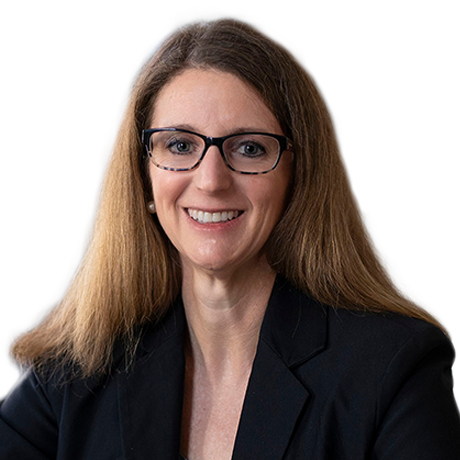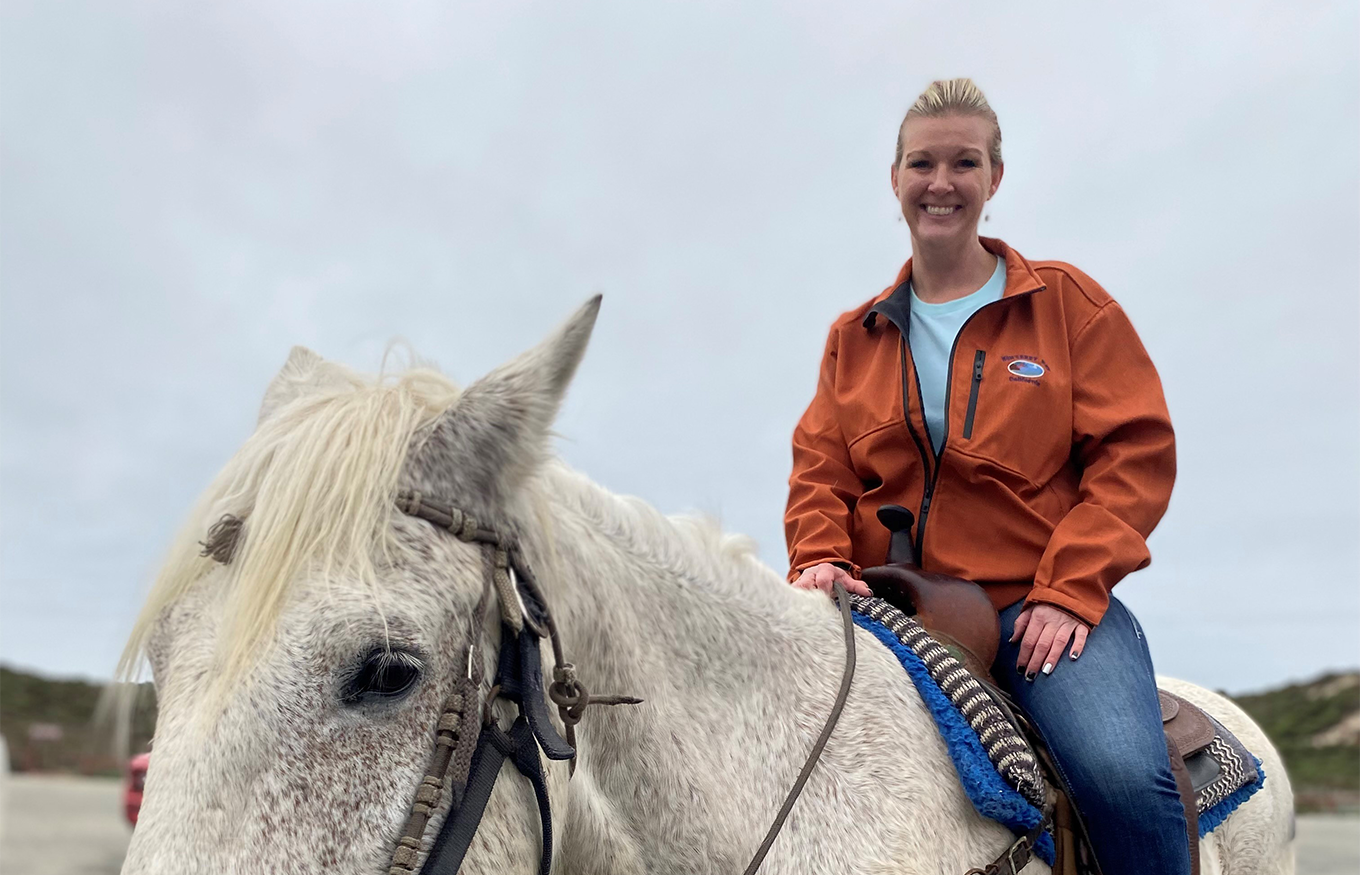Editor’s note: More than 10,000 officials across the country run U.S. elections. This interview is part of a series highlighting the election heroes who are the faces of democracy.
Adrian Fontes, a registered Democrat and Arizona native, was elected as Arizona’s secretary of state in November 2022. He previously served four years as the Maricopa County recorder and was the first Latino to hold a countywide elected office in the county that is home to more than 60% of Arizonans and includes the cities of Phoenix, Mesa, and Scottsdale.
Fontes’ victory in November 2016 marked the first time a Democrat held the role of Maricopa County recorder in more than 50 years. In November 2020, he lost reelection by about 4,600 votes, or 0.2% of the votes cast, even as Democrat Joe Biden won Maricopa County by about 45,000 votes and became just the second Democratic presidential nominee to win Arizona since 1948. With the 2024 presidential election in Arizona again expected to be close, all eyes will be on Fontes as the state’s top election official.
As a statewide and local election official, Fontes has championed voter accessibility, election transparency, and election security. Most recently, he has spearheaded efforts to highlight the threats artificial intelligence (AI) pose to elections and has led trainings to prepare state election workers for potential adverse situations.
Fontes is no stranger to public service. He began his career serving the nation in the United States Marine Corps. Additionally, Fontes has a law degree and practiced law for many years, including working in the offices of the Maricopa County Attorney and the Arizona Attorney General.
Fontes currently serves as one of two Arizonans on the U.S. Election Assistance Commission Standards Board. Since 2023, he has been a part of Issue One’s Faces of Democracy campaign, advocating for protections for election workers and for regular, predictable, and sufficient federal funding of elections.
This interview has been edited for length and clarity.
Issue One: How did you end up in the election administration profession?
Secretary Fontes: I ended up in election administration just like just about everybody else did — by happenstance. In the 2016 presidential preference primary election, here in Maricopa County, a lot of voters couldn’t vote. There were four- or five-hour long lines, and it was a real problem. I was a little bit involved in my political party, and so I decided to run against the 28-year incumbent here for county recorder.
We launched a campaign, and I won, and that’s how I ended up being the chief election administrator in Maricopa County, which became the second-largest voting jurisdiction in the United States. I had a very steep learning curve, but luckily I was surrounded by many professionals in the office who we kept on board because of their experience. Some of them had been there for decades. It was like drinking out of a fire hose, but we learned a lot. I’ve caught the bug. I love it.
Issue One: Why should people be inspired to go into government service?
Secretary Fontes: Government service is a space that a lot of people make jokes about. But you’re talking about folks who keep the roads drivable, who keep the water drinkable. You’re talking about folks who take care of our kids in our schools. You’re talking about folks that you’re going to call using 911 when you have an emergency. It’s a bummer that government has been demonized and the folks who work in civil service spaces have been undervalued in our popular culture so much. It’s unfair and it’s unwise, because especially in the last few years, we’ve seen how this critical space that we’ve taken for granted for a long time is incredibly important, not just for our democracy, but for our economy and for the health and welfare of our citizenry. It’s important that folks get engaged and pay attention to what matters.
Issue One: What skills and perspectives have you brought from your role as Maricopa County recorder into your position as Secretary of State?
Secretary Fontes: All of them. We haven’t had an election administrator as the secretary of state since Secretary [Jim] Shumway back in the 1980s. They’ve all come out of the legislature, and while legislators think they know stuff — and they do know stuff about policy at the high levels — they don’t know anything about actual administration. Counties run our elections. The secretary of state is just a regulator. It’s like asking someone who’s never been involved in football to be the commissioner of the NFL.
When I came in, I went out and found a bunch of mid- to late-career professionals who’d been doing this for a long time to help me do what we needed to do to help the counties, because at the end of the day, they’re where the rubber meets the road. They’re the ones who have the direct connectivity to our voters. My office needed to be able to ask the right questions at the right time of year to be able to support them.
The folks that are out there in all of our counties that run elections needed someone in this office who understands their plight in managing the politics, the legislature, the governor’s office, and all this other stuff.They needed an advocate in the secretary’s office. That’s really what I brought to this office.
Issue One: What part of the election administration story in Arizona isn’t told enough or isn’t widely understood enough?
Secretary Fontes: All of the parts of election administration in Arizona need to be more widely understood. One of the things I think that’s really critical is the checks and balances that we have. I think people misunderstand how you get onto the voter rolls, what sorts of things each of the individual county recorder’s do to verify that this is your address, to verify citizenship, to verify all the other things that we do here in Arizona. A lot of people make all these spurious allegations about things, and it’s clear that they have no idea what’s going on. There are so many checks and balances that the vast majority of folks don’t understand. That, to me, is where we really need to inform folks. We can start working towards educating the public better because we want them to be confident that their systems work.One of the best examples of this is voting machines. The only way to cast a ballot in Arizona is on paper. We don’t have voting machines. We have ballot marking devices that produce a paper ballot that the voter can look at and verify and then submit for tabulation.
Issue One: Arizona state statute requires localities to livestream video feeds of ballots in tabulation rooms at counting centers. Why do you think this type of transparency measure is helpful?
Secretary Fontes: All of our transparency measures are aimed towards making sure that folks have access and they feel like they’re closer to the process. At some point in the not too distant past, you’d turn in your ballot, you’d walk away, the results would come out, and that was that. Winners win. Losers try harder next time. And that was it. We’ve moved into a different phase now. There were multiple parts of our systems here in Arizona that were under 24/7 cameras before the 2020 election. I think it was in 2018 that we made sure that the cameras that were already available in Maricopa County were on during the times that ballots were being handled. All the way through the 27 days of early voting, we had a constant live stream. I just wanted to open the doors because sunshine is the best disinfectant.
I continue to encourage elections officials to do tours at the ballot tabulation centers. Bring in not just community leaders, but random members. Bring in a congregation from some church. Bring in the Boy Scouts and the Girl Scouts. Bring in whoever and show them what’s going on, because that word of mouth bleeds out into the rest of the community. Then suddenly, you’re building trust based on just building goodwill. The country is learning slowly, but surely, about our systems, about how they work, about the people who run them, about how secure and accurate they really are. And that’s a really good thing.
Issue One: Why is it important for election officials in one part of the country to defend the integrity of election processes in other parts of the country?
Secretary Fontes: One of the worst things that we can do as election administrators is say, “I don’t know what they do over there, but we do this over here.” That implies that you don’t know and don’t care enough to learn. Election administrators across the country do a lot of the same things. We just do them in a little bit of a different way. For example, when we vet our voters before we put them on the voter rolls, not everybody uses ERIC, but everybody has some way of verifying that the folks on the voter rolls are supposed to be there. And there are audits that periodically happen to remove folks who have passed away or who have moved out of the jurisdiction, etc. We do it a little bit differently, and that’s okay. Let’s stop pretending like we don’t know what’s going on over there. Let’s stop eroding trust.
We need to really change the narrative and be much more assertive and confident in the work that we already do. We already run great elections in America. We already have the ability to just open up the doors and let people see what we’re doing. We should be proud of the work that we do because we do good work. Celebrate your wins. Get out there and talk about the wins. And let people ask more questions. It’s about time society starts learning about what election administrators do.
Issue One: Many people are surprised to learn that the federal government doesn’t routinely fund the costs of running elections. Why do you think the federal government should routinely fund election administration costs?
Secretary Fontes: We’ve got federal candidates on federal ballots with federal rules in a federal election, and there’s no sustained federal money. The fact that there is no sustained federal money is so much more egregious because in 2017 elections were declared critical infrastructure by the Department of Homeland Security. Elections are the only part of federal critical infrastructure that doesn’t have permanent and sustained funding. Federal elections are an unfunded mandate onto the states. Some people will say it’s the states’ responsibility. They’ll say the Constitution says so. And the Constitution does say that the states run elections. But I’ll quote Section Four Article One: “The times, place, and manners of elections for Senators and Representatives shall be prescribed in each state by the legislature thereof.” But here’s what everybody forgets — “But, the Congress may at times, by law, make or alter such regulations.” So Congress has every right and every duty to make laws about elections. That being the case, they also have a responsibility to pay for that activity, and they don’t.
I’ve been banging the table on this particular issue for a long time because it’s important. We spend tons of money on our presidential candidates, on our congressional candidates, on our senatorial candidates. Those people need to pay for their elections. They’re the ones getting elected. It shouldn’t just be sloughed off onto the states. You’re not going to get equal treatment for all voters in the United States if all jurisdictions don’t have the necessary funding.
Issue One: You’ve been spearheading tabletop exercises to help prepare election workers for potential AI threats ahead of the 2024 election. What are your biggest concerns about the role that AI will play during elections this year? And how is your office equipping election officials to face these challenges?
Secretary Fontes: I reached back into my Marine Corps training for this. How do you deal with the bad guys? You’ve got to know what they’re using. You have to understand their tactics. You’ve got to think about their strategies.Some experts helped us create deepfakes of myself and other elections officials, some from my office and some from other offices around the state. We want to see, hear, feel, touch, smell, and taste what’s going to come at us. What could the possibilities be? By creating something that’ll pretend like it’s me, or pretend like it’s you, you’ll knock people’s socks off. And by using that in trainings, it takes the newness away. When we get into the live situation, we want them to have seen it and heard it, so they can know what the protocols are and be used to it.
We’re very happily and energetically sharing the information, sharing the training, and sharing our resources with other states around the country. Tabletop exercises really do prep us for the possible bad outcomes.
Issue One: Another major election administration challenge since November 2020 in Arizona and across the country has been high turnover among election officials. As secretary of state, how have you worked to support and train new local election officials?
Secretary Fontes: We’ve been impacted really severely in Arizona. It’s really problematic. We’ve got a lot of new people, but the good thing is they’re coming in. They understand some of the circumstances that they’re stepping into.
We’ve augmented the training for election officials to make it more useful to them. The election officer certification in Arizona is one of those examples. We put a lot of that training onlines. Officials can go back and refresh on some of the more technical stuff. We’ve also got a fellowship that we’re pioneering here in Arizona. We got some funds to be able to hire college and university students to put them into elections operations in the various counties around Arizona. Over time, we’re hoping to be able to formalize this process so that we can have a pipeline of folks who can perhaps, by happenstance, catch the bug of election administration. And we’re providing direct support to our counties as well. For a lot of these new folks, that’s important. We’re partnering with CISA , the Cybersecurity and Infrastructure Security Agency under the Department of Homeland Security. They have a physical security officer and a cyber security officer who we have deployed to all of our counties. We provide a “tiger team” who will go out and fix cybersecurity issues in the counties. The new folks can understand they’ve got a partner in us who’s going to help them assess their circumstances, provide some solutions, and actually implement some of those solutions.
We had the first statewide election under my administration in March with our presidential preference primary election. We didn’t have any incidents at all. It was a great dry run for folks. All of the new folks are sticking with it. I think they’re going to be fine.
Issue One: What’s your elevator pitch for why someone should work as a poll worker?
Secretary Fontes: First and foremost, working as a poll worker is an honor, and you’re helping your fellow citizens. Second, there are folks who’ve died for the right to vote. We’ve sent young men and women overseas so that other people could have the right to vote. So if you’re feeling patriotic, think about just doing the basics. Help your fellow citizens enjoy a good voting experience on Election Day.
Issue One: Outside of being passionate about running safe and secure elections, what are your hobbies, or what is a fun fact that most people might not know about you?
Secretary Fontes: As a young man, I was the lead male vocalist for the mariachi at Arizona State University. I got to sing on stage once with Linda Ronstadt in Tucson at the International Mariachi Conference. Every once in a while, I have been known to grab a guitar and feel my roots a little bit. It’s a lot of fun for me to just sit and play out on the back porch. That’s a good way for me to let my hair down. What’s left of it anyway.
Issue One: What is your favorite book or movie?
Secretary Fontes: “Ferris Bueller’s Day Off” is one of the best movies in the history of movies. It was a really fun movie from the 1980s, which was my time. I always refer back to Sun Tzu’s “Art of War.” I learned about it when I was in college, and we studied it quite a bit when I was in the Marine Corps. The metaphor is often overplayed, but we’re fighting against some folks that want to take us down a really dark path, where democracy doesn’t exist.
Every day, I try to remember why I’m doing what I’m doing. This is the experiment that the Founders launched us on into. I’m very proud to carry on that legacy, to do everything that I can every day to protect democracy. And to all the other election administrators out there, I say thank you. Keep your heads up and keep punching. We’re going to win.
Issue One: Which historical figure would you have most liked to have had an opportunity to meet?
Secretary Fontes: I would have loved to have a nice dinner with Albert Einstein when he was still young. He thought about the world in ways that nobody else contemplated. It was about the essential elements, and I’ve always been a big fan of thinking about big ideas. I would have loved to just sit and listen and learn from him.
Note: This piece was cross-published with The Fulcrum.







